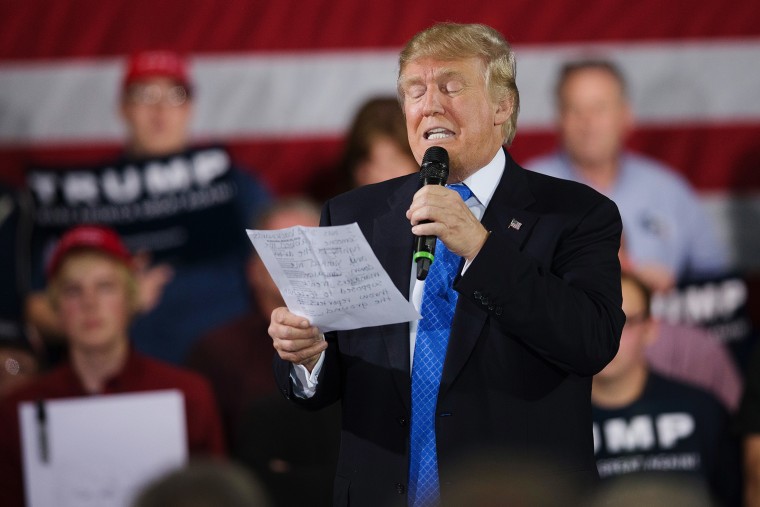In late March, before Special Counsel Robert Mueller's report on the Russia scandal was released, Donald Trump took a "victory lap," telling Americans he'd been "totally exonerated." The goal, by all appearances, was for the president and his allies to convince the public he'd been cleared before the evidence pointed in the opposite direction.
There's a fair amount of evidence to suggest that campaign did not work -- at least not as well as the White House hoped.
The latest Washington Post/ABC News poll found, for example, that while there's broad skepticism about presidential impeachment, most of the country concluded the Mueller investigation did not clear the president of wrongdoing. The same results showed a majority of Americans also determining that Trump lied about the Russia scandal.
A new Quinnipiac poll pointed in the same direction. On the one hand, the public rejects Republican claims about the president's innocence ...
American voters say 57 - 28 percent that Donald Trump committed crimes before he became president, according to a Quinnipiac University National Poll released today. In today's survey, 46 percent of voters say Trump committed crimes since he became president and 46 percent say he did not commit crimes. [...]Voters say 51 - 38 percent that the Mueller Report did not clear President Trump of any wrongdoing. American voters also say 54 - 42 percent that Trump "attempted to derail or obstruct the investigation into the Russian interference in the 2016 election."
... while on the other hand, the public also isn't on board with impeachment.
But American voters say 66 - 29 percent that Congress should not begin impeachment of President Trump.... Investigating Trump distracts Congress from other national issues, 53 percent of voters say, while 43 percent say Congress can investigate Trump and work on other national issues at the same time.
It's a bit jarring when we hear congressional Democratic leaders make the case that Trump appears to have committed impeachable acts, while simultaneously arguing that they don't want to pursue impeachment, but that seems to be the opinion of the American mainstream, too.
Indeed, while I haven't spoken to Democratic leaders about this, it's easy to imagine the latest polling weighing heavily on their minds. If public support for impeachment was overwhelmingly high, Pelosi, Schumer, & Co. would likely feel far more emboldened. But with opponents of impeachment easily outnumbering supporters, the political dynamic encourages timidity.
That said, as the process continues to unfold, I'd recommend keeping an eye on three dynamics.
First, there's a causation question to consider: are congressional leaders hesitant because support for impeachment is weak, or is support for impeachment weak because congressional leaders are hesitant?
Second, how sure are we that Americans generally understand what impeachment means? It's not uncommon, even among professional pundits, to hear observers use "impeachment" and "removal from office" interchangeably, even though that's plainly wrong. How many people are asked in a poll about impeaching Trump without appreciating the fact it would merely serve as an indictment ahead of a Senate trial?
And third, in case this isn't obvious, polls change. As 1973 got underway, support for Nixon's impeachment was pretty low, too, but as congressional hearings unfolded, and the public came to terms with the scope of the president's misdeeds, attitudes shifted.
Maybe things would be different in 2019, maybe not. But either way, let's not assume that polling on questions like these are static and inflexible. Recent history proves otherwise.
